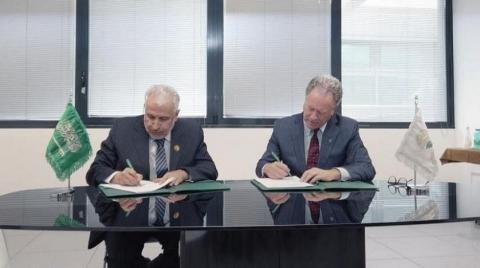Houthi Mines Kill 348 Yemenis in 2020


A recently published report by the United Nations Development Program (UNDP) revealed that mines continue to pose a significant threat to the security and safety of all civilians in war-torn Yemen.
Without directly blaming Iran-backed Houthi militias, who are responsible for planting mines across the country, the report said that 348 Yemenis had perished in 2020 from the explosives.
The legitimate government accuses the Houthis of planting more than a million mines in areas they control.
Yemeni activists have criticized UN agencies for their unwarranted support for the Houthis in the form of assistance in mine clearance programs. They stressed that the militias are responsible for planting mines and should be held accountable.
More so, activists warned that UN four-wheel drive vehicles given to Houthis might be used by the militias to plant more mines across contact lines and near the country’s west coast.
The Saudi Project for Landmine Clearance in Yemen (Masam), meanwhile, announced the dismantling of 2,277 mines and ordnances during the last week of March, bringing the total of explosive objects neutralized by the mission to 10,240 in that month alone.
In an official statement on Sunday, Masam confirmed that it has removed 230,592 mines and unexploded ordnance from the battle-weary country.
“Littered across the country, mine and unexploded ordnance contamination is a major risk of death and injury to civilians as 348 people perished in 2020. Shadowed under an ever-present fear that degrades community social structures, contamination also destroys livelihoods and has a significant negative impact on the wider economy,” the UNDP report said.
“Perseverance is a key component of UNDP’s national Mine Action Project and its partners to mitigate the long-term disproportionate impact of mines in Yemen. Together, we continue to build national capacity for removing threats posed by mines and unexploded remnants of war,” it added.
The UNDP is currently working with the Yemen Executive Mine Action Centre (YEMAC), which answers to the National Mine Action Committee (NMAC), to help advance demining operations in the Middle Eastern country.
“Ongoing cooperation between UNDP and YEMAC has resulted in the restoration of thousands of livelihoods, strengthened local demining capacity – including the certification of Yemen’s first woman deminer – and assisted Yemen with the implementation of key mine action convention obligations,” said Auke Lootsma, UNDP’s Yemen resident representative.

Paris — The French humanitarian organization Acted announced that it has delivered cash assistance to nearly 89,000 people affected by displa…

Sana’a — Fuel and food imports into ports under the control of Yemen’s Houthi movement on the Red Sea have continued to fall for…

ADEN — Yemen Airways, the country’s national carrier, announced it will resume flights between Aden and Abu Dhabi beginning in January…